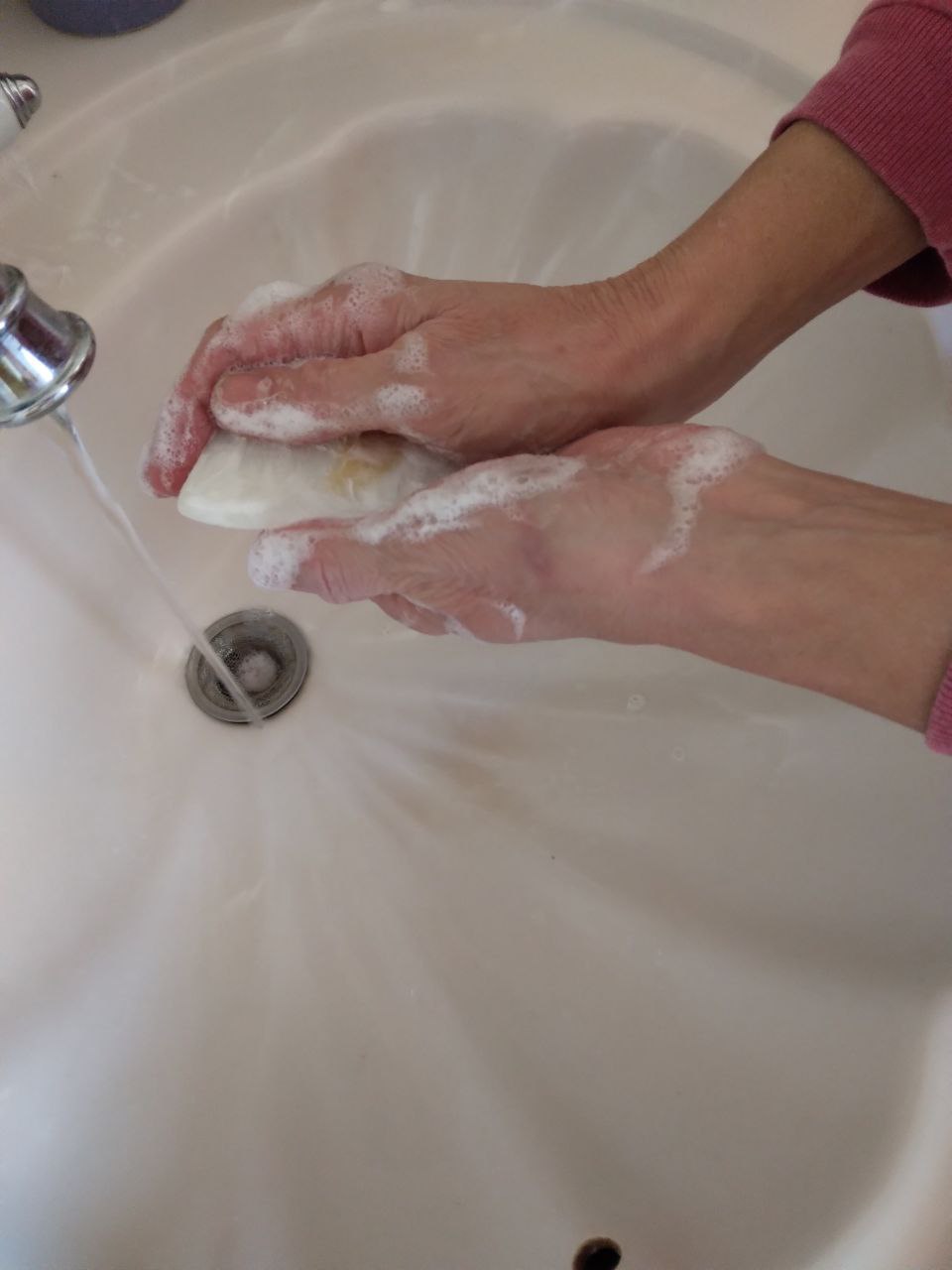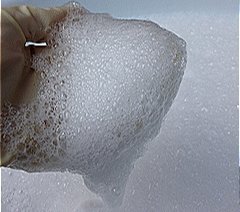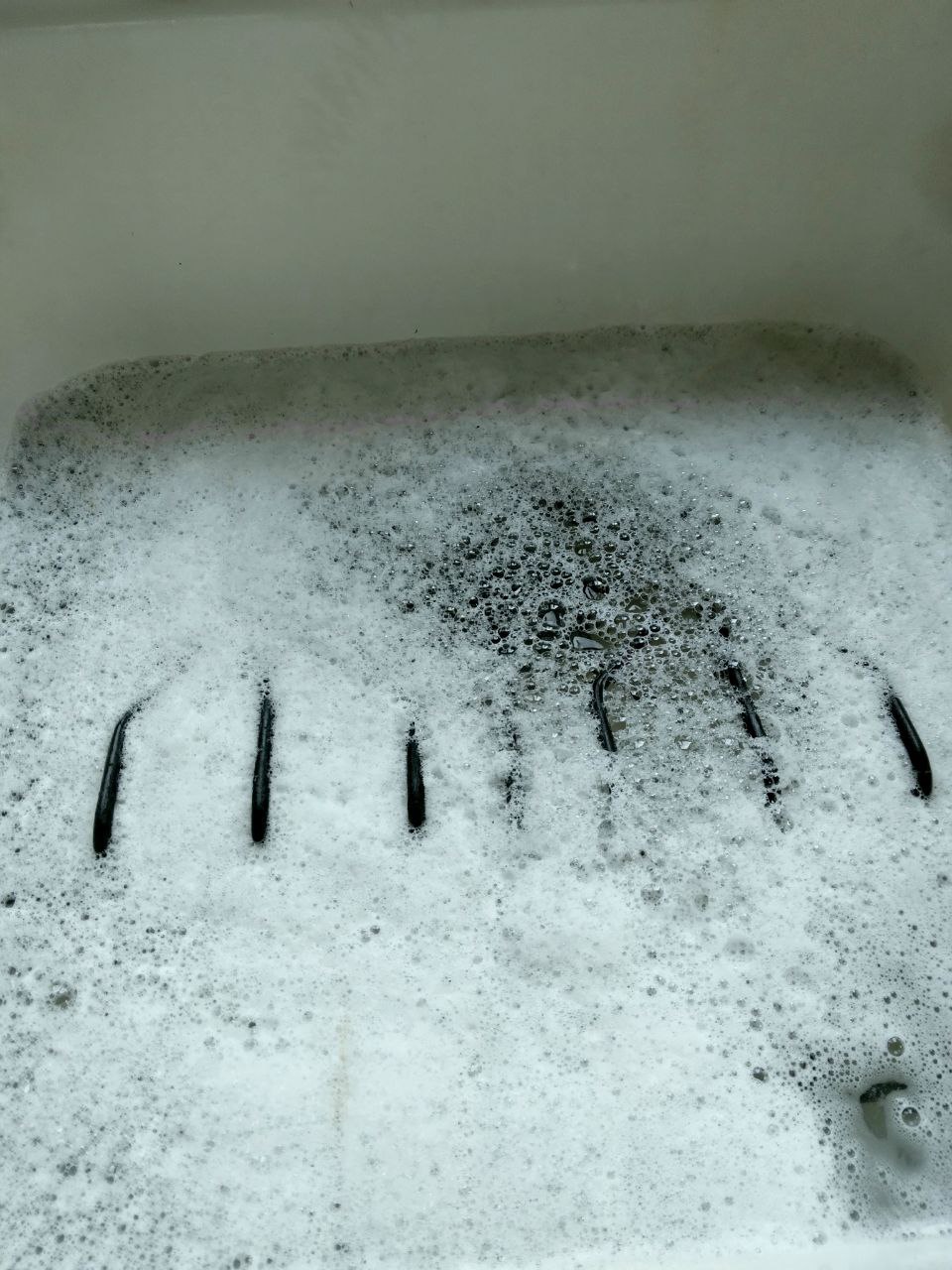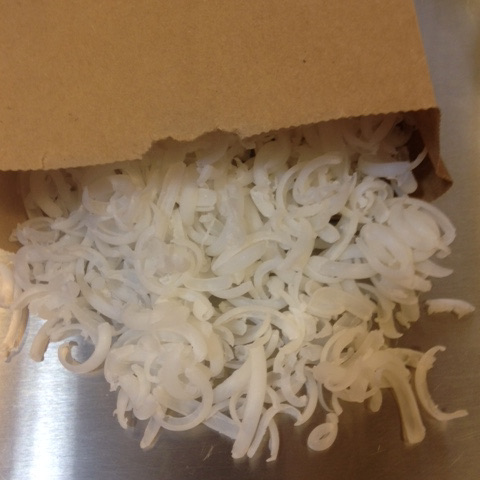It's time to get the comfort you deserve. Good soap matters. soapisbest.com
Wash your hands
Wash your hands with soap and water. It is the easiest and best way to stay healthy. Good soap is made with saponified vegetable oil, otherwise known as Castile soap.
You wash your hands before and after certain tasks such as eating, cooking, brushing your teeth.
You also wash your hands after other tasks such as using the toilet, cleaning up after pets, changing a diaper, gardening, cleaning the bathroom.
How to Wash Your Hands Properly
Keeping your hands clean and washing them regularly is one of the most important steps to avoid getting sick yourself, and spreading germs to others. Many infectious diseases and conditions are spread by washing hands with something other than soap and clean water. Running clean water is best. Soap and water are best.
How you wash your hands, with a natural hand soap that produces a good lather, makes all the difference. Lather has a very important key function. As you rub your hands together for a minimum of 20 seconds, the lather forms, and the bubbles collect excess dirt and oil. If there is an excessive amount of dirt and oils, the lather will "fill up". When that happens, the lather changes to a thin soap substance. In that case, rinse and a second hand washing is recommended.
The ph of the soap matters. Anything higher than 7, pierces germ walls and in most cases, the germs are killed by exposure to the soap. When you rinse your hands, excess dirt, oils and germs are washed away in the filled up lather.
You can do a simple experiment with soap and water. Wash your hands your normal way and see if it is under 20 seconds. Simply pay attention to this regular routine. Dry your hands. Take note of how your hands feel.
The next time you wash your hands, make sure you have a good lather, and vigorously scrub for at least 20 seconds. Then dry. You can feel the difference.
7 steps of washing hands
Follow these 7 steps of hand washing to maintain great health:
- Wet your hands with clean water. It's better if the water is running.
- Vigorously rub a natural bar soap of your choice between your hands to create an abundance of lather
- Put the bar of soap down, and rub your hands together. Rub your palms, the backs of your hands, your fingertips, the nail beds, in between your fingers, wrists.
- Rub and suds for at least 20-30 seconds. Sing a son if it helps.
- Rinse your hands and wrists in clean water. Running water is best.
- Dry your hands with a clean towel (cloth or paper) or shake them to air dry
- Turn off the faucet. If you are at home, wash the faucet and sink with a clean sponge and soap and water. If you are in a public restroom, turn the faucet off, using a clean hand towel.
Disease Control is essential
Natural Bar Soap is anti microbial simply because of how it functions. You touch it with your dirty hands, and place it under running water. As you rub off a layer, it gets onto your hands, and you put the bar back in it's dish. The new fresh layer is ready for the next use. If any germs actually stay on the bar, the ph will kill them, and they will be rinsed off with the next use.
In the case of Waterless Hand Soap (WHS), all of that excess will be rinsed off when you are around running water again. In the meantime, while you are away from running water for long periods of time and have washed your hands with the Waterless Hand Soap many times, you may actually produce a lather when you finally rinse with running water. If you have a clean portable towel or tissue, you can wipe off WHS after you have rubbed it on your hands thoroughly for 20 seconds or more, thereby removing some of the killed germs.
Regardless of whether or not you prefer to remove the WHS before you are near running water, refrain from touching your face. Becoming conscious of your natural unconscious actions, is the first step in disease control.
How germs get onto hands and make people sick
Feces (poop) from people or animals is an important source of germs like Salmonella, E. coli O157, and norovirus that cause diarrhea, and it can spread some respiratory infections like adenovirus and hand-foot-mouth disease. These kinds of germs can get onto hands after people use the toilet or change a diaper, but also in less obvious ways, like after handling raw meats that have invisible amounts of animal poop on them. The simple act of washing your food before cooking is an excellent form of disease control.
A single gram of human feces—which is about the weight of a paper clip—can contain one trillion germs -1. Germs can also get onto hands if people touch any object that has germs on it because someone coughed or sneezed on it or was touched by some other contaminated object. When these germs get onto hands and are not killed and washed off, they can be passed from person to person and make people sick.
Wash hands to prevent illnesses and spread of infectious disease
Proper hand washing with soap and water can prevent illness and the spread of infectious disease because:
- People frequently touch their eyes, nose, and mouth without even realizing it. Germs can get into the body through the eyes, nose and mouth and make us sick.
- Germs from unwashed hands can get into foods and drinks while people prepare or consume them. Germs can multiply in some types of foods or drinks, under certain conditions, and make people sick.
- Germs from unwashed hands can be transferred to other objects, like handrails, table tops, or toys, and then transferred to another person’s hands.
- Removing germs through proper hand hygiene and frequent hand washing helps prevent diarrhea and respiratory infections and may even help prevent skin and eye infections.
Teaching people about handwashing helps them and their communities stay healthy, and subsequently controls disease. Handwashing education in the community:
- Reduces the number of people who get sick with diarrhea by 23-40%- 2,3 6.
- Reduces diarrheal illness in people with weakened immune systems by 58% -4.
- Reduces respiratory illnesses, like colds, in the general population by 16-21%- 3, 5.
- Reduces absenteeism due to gastrointestinal illness in schoolchildren by 29-57% -7.
Not washing hands harms children around the world
About 1.8 million children under the age of 5 die each year from diarrheal diseases and pneumonia, the top two killers of young children around the world -8.
- Handwashing with soap could protect about 1 out of every 3 young children who get sick with diarrhea- 2, 3 and almost 1 out of 5 young children with respiratory infections like pneumonia -3,5.
- Although people around the world clean their hands with water, very few use soap to wash their hands. Washing hands with soap kills and removes germs much more effectively and controls disease- 9.
- Handwashing education and access to soap in schools can help improve attendance-10, 11, 12.
- Disease control through good handwashing early in life may help improve child development in some settings -13.
- Estimated global rates of handwashing after using the toilet are only 19%- 6.
Hand washing helps battle the rise in antibiotic resistance
Overuse of antibiotics can cause as many problems as they cure. Small personal habit changes on a societal scale help raise living standards worldwide. Spread the word of hand washing and control disease instead.
Preventing sickness reduces the amount of antibiotics people use and the likelihood that antibiotic resistance will develop. Handwashing can prevent about 30% of diarrhea-related sicknesses and about 20% of respiratory infections (e.g., colds)- 2, 5. Antibiotics often are prescribed unnecessarily for these health issues- 14. Reducing the number of these infections by washing hands frequently helps prevent the overuse of antibiotics—the single most important factor leading to antibiotic resistance around the world. Handwashing can also prevent people from getting sick with germs that are already resistant to antibiotics and that can be difficult to treat.
This article has been sourced from the Center for Disease Control and Prevention and References.
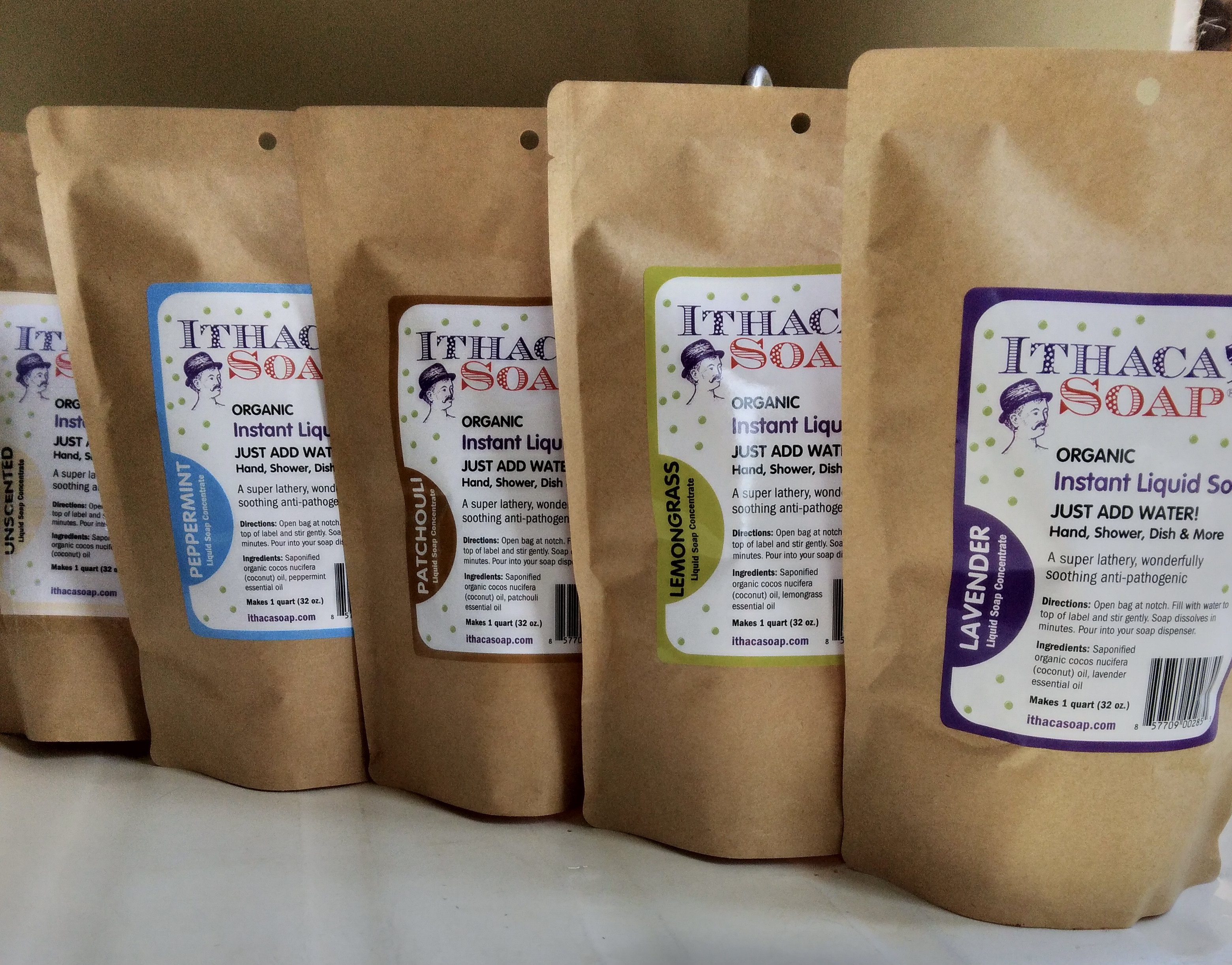 Choose from 5 different natural essential oil scents
Choose from 5 different natural essential oil scentsInstant Liquid Soap is the perfect stovetop cleaner. It's gentle on your hands while being tough on built up, caked on grease. Click here to read How to Clean your Greasy Stovetop using zero waste natural soap methods
- Tear open pouch at notch
- Fill pouch with water to top of label. Gently stir.
- Pour into a reused plastic bottle. Use.
The future starts now as you end single use plastic bottles. Click here
Sign me up now
for a 25% off coupon
ithacasoap.com
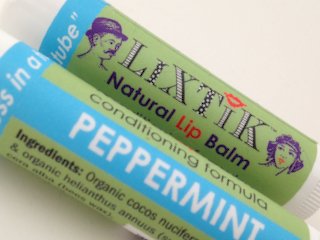 Peppermint bees wax lip balm
Peppermint bees wax lip balmMoisturize, hydrate, and nourish your lips with wonderfully luxurious
Leave your lips moist and smooth for many hours. Soothes severely chapped lips.
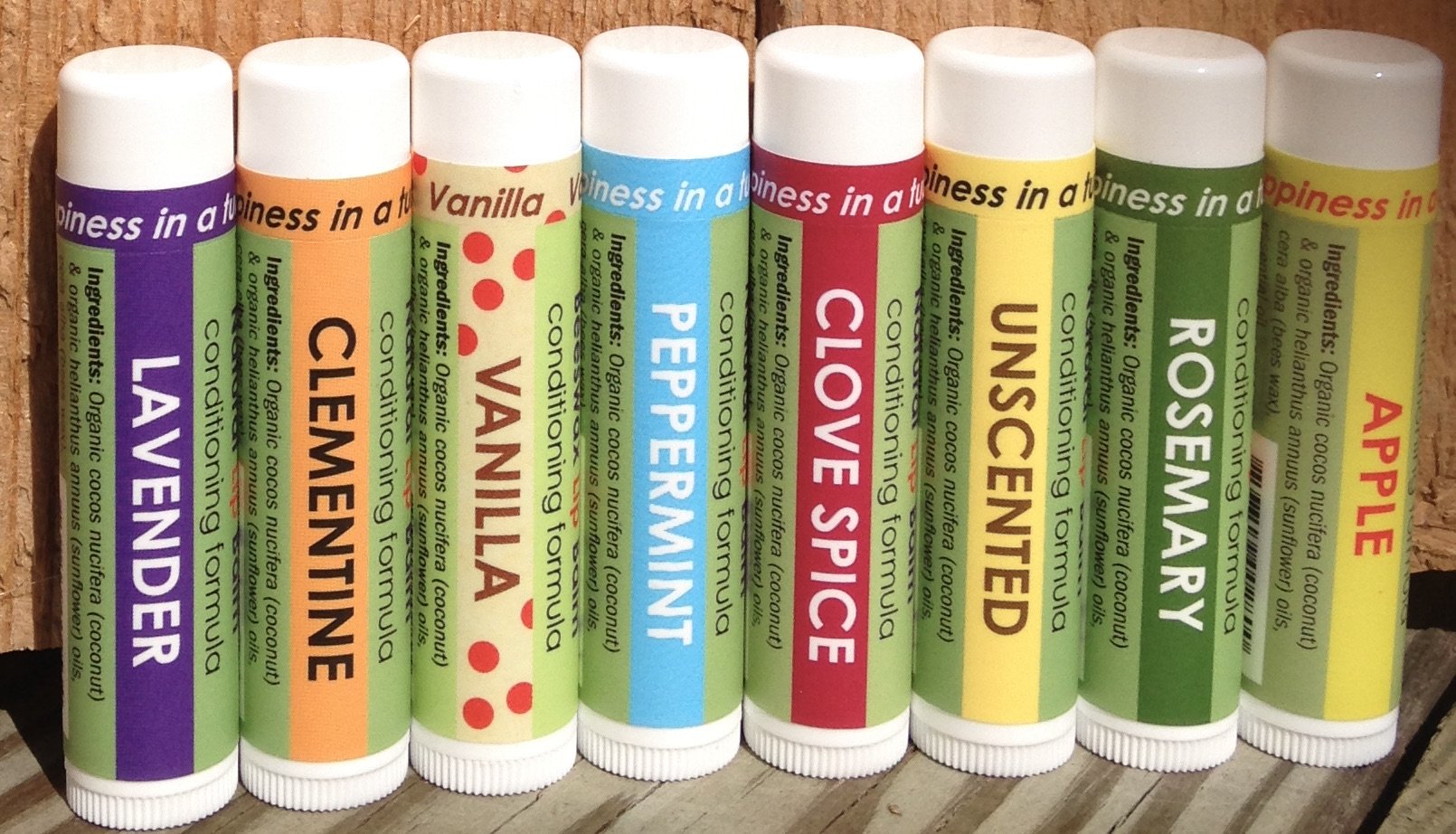 Choose from 8 LiXTiK Beeswax flavors/scents. Ingredients: Organic coconut and sunflower oils, premium beeswax, 100% pure essential oils Choose from 8 LiXTiK Beeswax flavors/scents. Ingredients: Organic coconut and sunflower oils, premium beeswax, 100% pure essential oils |
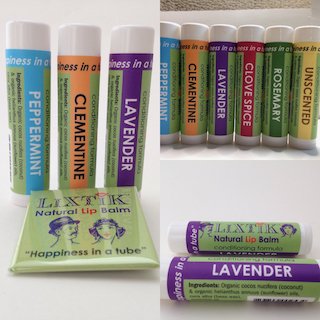 Get a 3 pack and save Get a 3 pack and save |
